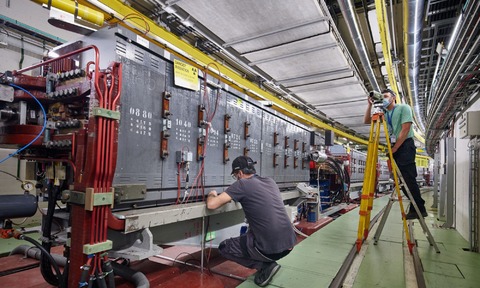Belgium’s universities start work on ‘new physics’ for CERN
4 Jun 2025

Belgian universities have begun work on updating one of the two particle physics detectors that form part of the European Organisation for Nuclear Research (CERN’s) particle accelerator, the Large Hadron Collider.
The Compact Muon Solenoid experiment or CMS involves more than 5,000 scientists and technicians.
Central to its operation are the modules that form the tracker enabling the detector to record the trajectories of the particles produced during the 40 million collisions per second that occur within the Large Hadron Collider (LRC).
However, the predicted ‘explosion’ of data expected to occur beyond 2030 has required the current detector to be replaced, with the LHC accelerator shutting for a four year upgrade.
The Flemish speaking Vrije Universiteit Brussel (VUB) has the task of constructing the 1,600 modules, together with its French speaking counterpart, the Université libre de Bruxelles and three other institutions.
The two year endeavour will be undertaken at their joint venture, the Interuniversity Institute for High Energies (IIHE), working with researchers from Louvain, Ghent and Antwerp universities.
“We are contributing to an instrument that helps us seek answers to the most profound questions about the universe,” said IIHE director, the VUB’s professor Michael Tytgat.
“We are proving that fundamental research need not be a distant concept. What we are building here is, quite literally, part of a global quest for new physics.”
Pic: CERN

